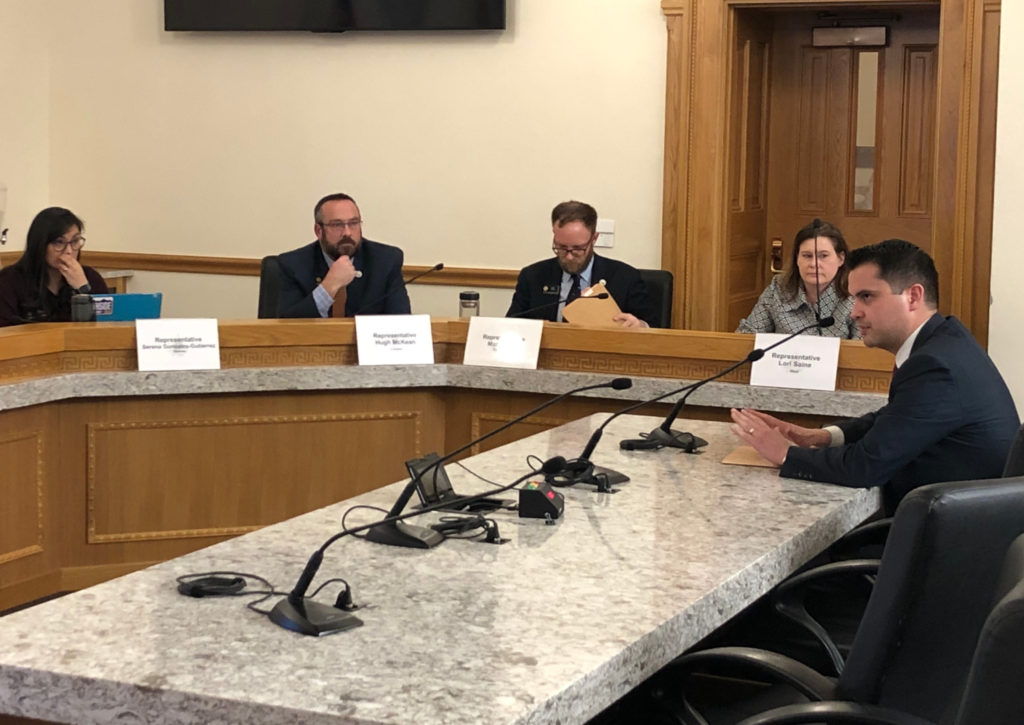By Jeffrey A. Roberts
CFOIC Executive Director
At the bill sponsor’s request, a Colorado House committee Tuesday killed a measure that would have significantly weakened the 2019 state law that opened records on police internal affairs investigations.
Rep. Dave Williams, a Colorado Springs Republican, said he couldn’t get transparency advocates and law enforcement groups to work together on a compromise amendment to House Bill 20-1106, which would have made the internal affairs files of “exonerated” officers off-limits to journalists and the public without a court order.

Because the proposal didn’t define the term “exonerated,” it could have closed off access to the records of many internal affairs cases that are found to be unsubstantiated.
“My goal isn’t necessarily to satisfy one competing interest or another. My goal is to help the cop on the beat” who has been wrongfully accused of misconduct, Williams told members of the House Judiciary Committee.
He blamed the bill’s failure on transparency organizations that “are trusting the criminals more than they are the people who are in uniform or carry a badge” and law enforcement groups that have “this desire to go back to a time where they could summarily deny open inspection of these investigative files. And that’s not appropriate either.”
“So there are two sides that have competing interests that could not come to any sort of agreement or consensus,” Williams said, “and I think it’s unfortunate because at the end of the day we should be doing what we can to ensure that good cops can do their jobs without second-guessing themselves.”
When the bill was introduced in January, Rebecca Wallace, staff attorney for the American Civil Liberties Union of Colorado, estimated it could affect 90 percent of internal affairs files.
“It is extremely rare that an IAB investigation results in a finding that the police officer didn’t do” what he or she was accused of doing, she said. “Instead, the finding is that the claim was unsubstantiated because there was insufficient information to conclude whether or not the allegation was true … It generally does not indicate that the officer was exonerated.”
Williams had told the Colorado Freedom of Information Coalition he only wanted to close the files of law enforcement officers who have been cleared of false accusations. “There are instances where good cops can have their names dragged through the mud unnecessarily, and what I want to do is strike a good balance,” he said in January.
The law that went into effect in April 2019 established a statewide presumption of openness for records about how law enforcement agencies in Colorado police themselves. Before the enactment of House Bill 19-1119, most police departments and sheriff’s offices around the state routinely withheld records of completed internal affairs investigations using blanket policies or upon a finding that disclosure would be “contrary to the public interest.”
But now journalists are getting records of completed internal affairs investigations from jurisdictions that previously denied such requests. The new law applies to records “related to a specific, identifiable of alleged misconduct involving a member of the public” while an officer is in uniform or on duty.
HB 20-1106, which died on a 9-0 vote, would have permitted access to the internal investigative file of an “exonerated” officer only if a court found that a petitioner demonstrated “a compelling interest for wanting access.”
Follow the Colorado Freedom of Information Coalition on Twitter @CoFOIC. Like CFOIC’s Facebook page. Do you appreciate the information and resources provided by CFOIC? Please consider making a tax-deductible donation.




